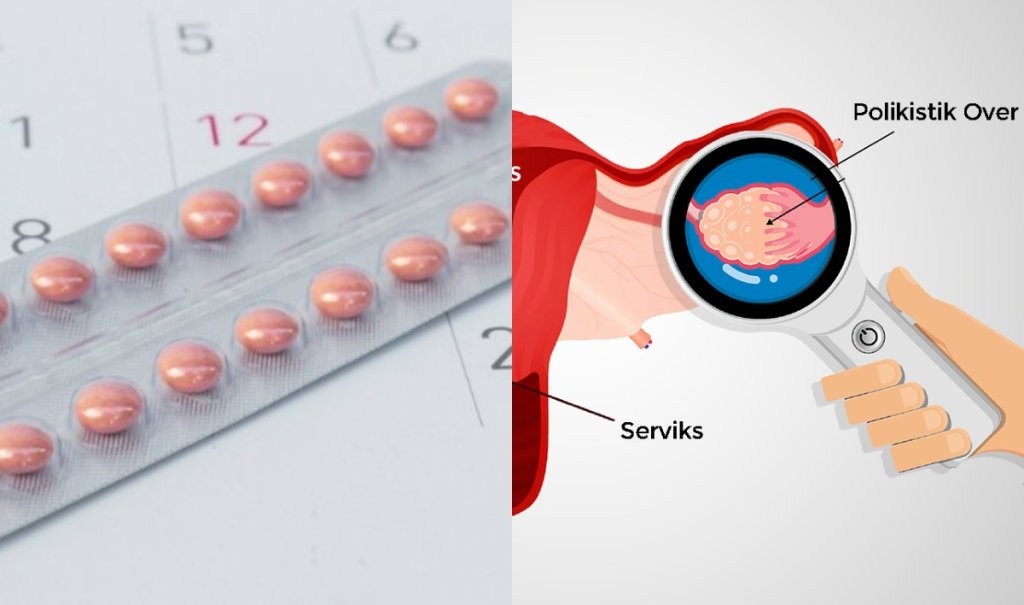Birth control pill may reduce risk of type 2 diabetes in women with polycystic ovary syndrome

A study led by the University of Birmingham has revealed for the first time that the birth control pill can reduce the risk of type 2 diabetes in women with polycystic ovary syndrome (PCOS) by a quarter.
Research findings also show that women with PCOS are twice as likely to develop type 2 diabetes or pre-diabetes (dysglycemia) – emphasizing the need for urgent treatment to reduce this risk.
In addition to the risk of PCOS, which affects 10% of women worldwide, long-term endometrial cancer, cardiovascular disease and non-alcoholic fatty liver disease (NAFLD).
Symptoms of PCOS include irregular or no menstrual periods, which can lead to fertility problems, and many suffer from unwanted facial or body hair growth (known as “hirsutism”), scalp and acne. These symptoms are caused by high levels of the hormone called the blood of women with PCOS.
Women with PCOS also often struggle with weight gain, and the cells in their bodies are often less responsive to insulin, the hormone that allows the body to absorb glucose (blood sugar) into cells for power. This decreased response to insulin can lead to high blood sugar levels and cause the body to make more insulin, which causes the body to make more androgens. Androgens increase insulin levels even more – causing a vicious cycle.
A group of scientists led by the University of Birmingham conducted two studies, first, to determine the risk of developing type 2 diabetes and prediabetes in women with PCOS, and second, to investigate the effect of using combined oral contraceptives, often referred to as “”. The ‘pill’ on the risk of type 2 diabetes and prediabetes in women with PCOS. The pill is often given to women with PCOS to restore the regularity of menstrual bleeding.
Using UK patient GP records of 64,051 women with PCOS and 123,545 matched control women without PCOS, they first conducted a large population-based cohort study to analyze the risk of type 2 diabetes and prediabetes. They found that women with PCOS had twice the risk of type 2 diabetes or pre-diabetes compared to women without PCOS. In addition, they identified among women with PCOS as a significant risk factor for type 2 diabetes and diabetes, a clinical manifestation of high androgen levels.
To investigate the effect of the pill on type 2 diabetes or diabetes, researchers, including experts from the RCSI University of Medicine and Health Sciences, then conducted a control study on 4,814 women with PCOS. Scientists have found that the use of combined oral contraceptives reduces the likelihood of developing type 2 diabetes and prediabetes by 26% in women with PCOS.
The researchers behind the study, published today in Diabetes Care, now plan to conduct a clinical trial to further substantiate their findings in hopes that it will lead to changes in global health policy.
Professor Wiebke Arlt, Director of the Institute for Metabolism and Systems Research at the University of Birmingham, said: “We knew from previous, smaller studies that women with PCOS have an increased risk of type 2 diabetes. However, what is valuable about our research is that we were able to provide very large evidence-based evidence to show for the first time that we have a potential treatment option to prevent this crucial health risk – combined oral contraceptives – new from a new study.”
Dr Michael O’Reilly, Health Research Panel Emerging Clinician Scientist and Clinical Associate Professor at the RCSI University of Medicine and Health Sciences, added: “We hypothesize that the pill reduces the risk of diabetes by reducing the effect of androgens. This pill reduces a measure of estrogen in the blood called sex hormone-binding globin (SHBG). Unbound active androgens reduce their influence on insulin and diabetes risk.”
Anuradhaa Subramanian, again from the University of Birmingham, added: “In one of 10 women living with PCOS, a lifelong metabolic disorder, it is incredibly valuable that we find ways to reduce the associated health risks.”
Krish Nirantharakumar, Professor of Health Information Science and Public Health at the Institute for Applied Health Research at the University of Birmingham, added: “Importantly, our data highlight that ordinary-weight women with PCOS are also at risk for type 2 diabetes, and this only complicates the idea that metabolic complications in the context of obesity are more relevant in the context of obesity, in line with our previous finding of obesity in PKOS. Many, factors specific to PCOS, including androgen excess, underlie the increased metabolic risk.”
The work was supported by funding from the UK Health Information Survey, the Wellcome Trust, the Health Research Panel and the National Institute of Health Research Birmingham Biomedical Research Center Institute, headquartered at the University of Birmingham and University Hospitals Birmingham NHS Foundation Trust.
The research was also carried out in collaboration with the University of Colombo in Sri Lanka and McGill University in Canada.
Source:
- On-Site Comments















Comment